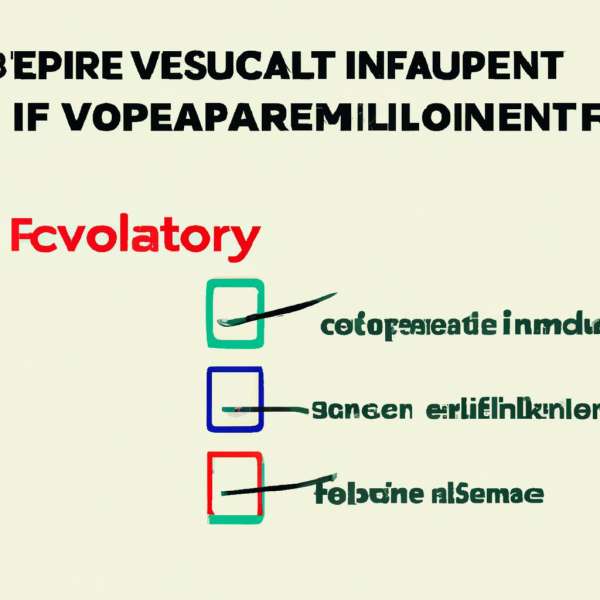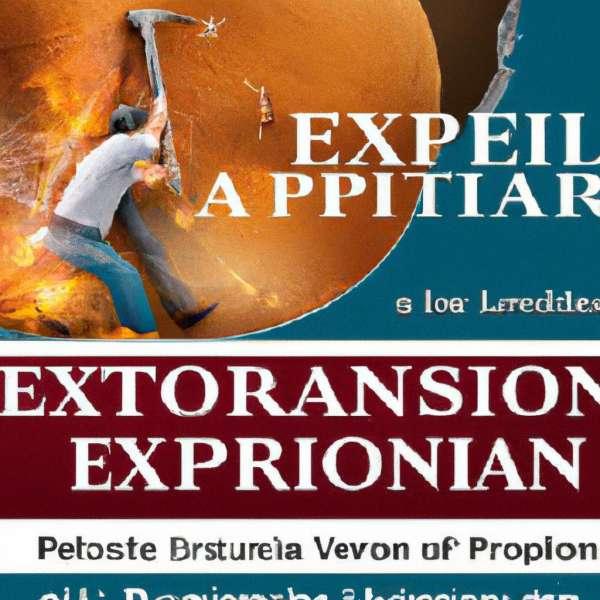In the complex landscape of personal injury law, vocational experts play a pivotal yet often underappreciated role. These specialists, equipped with a blend of education, experience, and a deep understanding of workplace dynamics, step in to clarify the intricate relationship between injury and employability. By evaluating the impact of physical impairments on an individual’s ability to work, vocational experts act as both evaluators and advocates, helping those affected by misfortune to rebuild their lives. This article explores the diverse responsibilities of vocational experts, examines how their insights can influence personal injury cases, and highlights their essential contribution to achieving fair compensation. Join us as we uncover the critical role these professionals play in navigating the often challenging waters of personal injury claims.
The Expertise of Vocational Professionals in Injury Litigation
In personal injury litigation, vocational professionals are key players, providing insights that connect health-related impairments with employability. Their expertise extends beyond assessing claimants’ capabilities to understanding the economic impact of injuries. These professionals use a comprehensive approach that includes:
- Work History Analysis: Reviewing past employment to evaluate skills and experience relevant to future job opportunities.
- Skills Assessment: Identifying transferable skills applicable to different occupations, crucial for those unable to return to their previous roles.
- Labor Market Analysis: Analyzing current labor market trends and job availability to provide a realistic outlook on employment opportunities within the claimant’s geographical area.
- Diagnostic Testing: Conducting assessments to determine the psychological and physical capabilities required for specific tasks.
Vocational experts use various assessment tools and methodologies to present their findings effectively in court. Their reports include both qualitative and quantitative analyses, which can significantly impact settlement negotiations or trial outcomes. A well-structured report from a vocational expert typically includes:
| Report Component | Description |
|---|---|
| Functional Capacity Evaluation | Assessment of physical abilities relevant to specific job functions. |
| Job Demand Analysis | Evaluation of the physical and cognitive demands of potential job options. |
| Comparative Income Assessment | Analysis of wage loss in light of the applicable local job market. |
| Rehabilitation Recommendations | Suggestions for vocational rehabilitation services to aid in transition. |
This detailed, methodical approach not only provides a clear picture of the claimant’s vocational status post-injury but also serves as crucial evidence for juries, judges, and mediators in understanding the long-term repercussions of the injury on the individual’s quality of life and earning potential. Thus, vocational experts are not just analysts; they are essential interpreters of how injuries translate into real-world employment challenges.

Evaluating Employability: How Vocational Experts Assess Career Impact
In personal injury cases, vocational experts are crucial in evaluating how injuries affect an individual’s employability. These specialists use various methodologies to assess the impact of injuries on work capabilities and identify suitable career paths post-injury. Key factors they consider include:
- Physical Limitations: Assessing how injuries restrict physical capabilities in specific job roles.
- Skill Set Analysis: A thorough evaluation of the individual’s skills to determine their applicability to new job opportunities.
By providing a comprehensive analysis, vocational experts help ensure that injured individuals receive fair compensation and support in their journey to regain employment and stability.
evaluation of an individual’s current skills and qualifications is crucial in identifying potential new career paths.
By conducting this thorough analysis, vocational experts can offer specific recommendations for rehabilitation and retraining programs. Their expertise often results in the development of customized vocational plans that align an injured person’s capabilities with appropriate job opportunities. This process typically includes:
| Assessment Area | Key Questions | Potential Outcomes |
|---|---|---|
| Physical Abilities | What tasks can the individual still perform? | Job roles that match physical capabilities. |
| Skills and Experience | What transferable skills does the individual have? | Identification of alternative job sectors. |
| Market Demand | What roles are currently in demand? | Recommendations for high-demand occupations. |
| Emotional Readiness | Is the individual psychologically prepared to return to work? | Support resources and tailored job placements. |
Through these evaluations, vocational experts not only provide clarity for legal cases but also empower individuals with actionable insights for rebuilding their careers. Their role extends beyond mere data analysis; they are pivotal in creating pathways for recovery, ultimately fostering a sense of empowerment in those affected by personal injuries.

Navigating Challenges: The Role of Vocational Experts in Damages Calculations
In the intricate landscape of personal injury cases, vocational experts play a vital role in assessing and calculating damages related to lost earning capacity. Their expertise lies in understanding both the labor market and the specific limitations imposed on an individual by their injury. This dual understanding enables them to provide a nuanced and detailed analysis that accurately reflects the impact of an injury on a person’s ability to work.
Vocational experts employ various methodologies in their evaluations, focusing on the following aspects:
- Evaluation of Current Skills: Identifying transferable skills and qualifications that may still be applicable in the workforce.
- Job Market Analysis: Assessing current job market conditions to identify opportunities that align with the individual’s circumstances.
- Financial Impact: Estimating the potential financial losses due to decreased earning capacity and the duration of these losses.
Given the complexity of personal injury cases, the calculations made by vocational experts often require detailed presentations that can be easily understood by judges and juries. To effectively illustrate their findings, they might compile comprehensive reports or tables summarizing the projected loss of earnings. For example, the following table could encapsulate potential future earnings pre- and post-injury:
| Time Period | Pre-Injury Earnings | Post-Injury Earnings | Projected Loss |
|---|---|---|---|
| Year 1 | $50,000 | $30,000 | $20,000 |
| Year 2 | $52,000 | $28,000 | $24,000 |
| Year 3 | $54,000 | $25,000 | $29,000 |
This clear representation not only aids in understanding the economic impact of the injury but also serves as essential evidence in court. Ultimately, the insights provided by vocational experts are indispensable for both legal teams and those affected, ensuring that compensation accurately reflects the long-term financial consequences of the injury.
long-term effects of injuries sustained.

Optimal Strategies for Attorneys: Partnering Successfully with Vocational Experts
To fully leverage the expertise of vocational experts in personal injury cases, attorneys should focus on fostering a cooperative relationship. This involves establishing open communication channels where both parties can share their expectations and insights. Here are some **essential strategies** for effective collaboration:
- Initiate Early Consultations: Engage vocational experts at the outset of the case to gather insights that can inform the overall strategy.
- Provide Comprehensive Information: Share all relevant case details, including medical records and treatment plans, to enable the expert to analyze the case thoroughly.
- Promote Active Involvement: Create an environment where the vocational expert can contribute their expertise during pre-trial preparations and courtroom presentations.
- Define Roles and Responsibilities: Clearly outline each party’s responsibilities to prevent overlaps and ensure a unified approach to the case.
Moreover, understanding the methodologies used by vocational experts can enhance the quality of their testimony and reports. By familiarizing themselves with the types of assessments employed and their implications, attorneys can engage in more productive discussions about the potential vocational impacts on the client’s future. Below is a brief overview of common assessment types:
| Assessment Type | Description |
|---|---|
| Transferable Skills Analysis | Assesses skills from previous occupations that may be relevant to new job opportunities. |
| Labor Market Survey | Examines current job market trends and the availability of positions for the client’s skills. |
| Job Task Analysis | Evaluates the physical and mental demands of jobs pertinent to the client’s capabilities. |
By incorporating these practices, attorneys can not only enhance the outcomes of their personal injury cases but also ensure that the vocational expert’s input is utilized effectively, ultimately benefiting the client’s recovery and future employment prospects.
Conclusion
As we conclude our examination of the crucial role that vocational experts play in personal injury cases, it is evident that these professionals serve as vital guides in the intricate landscape of legal proceedings. With their specialized knowledge and insights, vocational experts shed light on the often-overlooked aspects of an individual’s ability to work and earn a living post-injury. Their analyses not only help in accurately quantifying damages but also humanize the legal process, ensuring that the unique circumstances of each case are recognized and addressed.
In a field where the complexities of personal injury law can be overwhelming, vocational experts act as champions for fairness and justice, linking physical impairments to the economic realities faced by injured individuals. Their contributions remind us that behind every statistic lies a story—a narrative of resilience and adaptation in the face of adversity.
Ultimately, the collaboration between legal professionals and vocational experts enriches the resolution of personal injury claims, fostering outcomes that respect the experiences of those affected. As we reflect on the importance of these partnerships, let us continue to advocate for a holistic approach to injury cases, acknowledging the essential role of expertise that extends beyond the courtroom and into the heart of recovery.
Unlocking Justice: How Vocational Experts Shape Personal Injury Cases
The Role of Vocational Experts in Personal Injury Cases
Vocational experts are integral to personal injury cases, providing insights that can determine the outcome of litigation. These professionals evaluate the impact of injuries on an individual’s ability to work, their earning potential, and their future job prospects. By doing so, they help in determining fair compensation for damages.
Key Responsibilities
- Assessing Functional Capabilities
- Analyzing Employment History
- Evaluating Future Employability
- Estimating Lost Wages and Earning Capacity
How Vocational Experts Conduct Their Evaluations
Vocational experts employ a multifaceted approach to evaluate a plaintiff’s work capacity. This includes physical assessments, psychological evaluations, and vocational testing. These evaluations aim to provide a comprehensive picture of the plaintiff’s abilities and limitations.
Data Collection Methods
- Medical Record Analysis
- Work History Review
- Field Research and Labor Market Surveys
- Psycho-vocational Assessments
Use of Modern Tools
Today, vocational experts leverage advanced tools and software to simulate job requirements and assess an individual’s capability to perform those jobs. These innovative tools enhance the accuracy of their findings.
Benefits of Involving Vocational Experts
Enlisting the expertise of vocational professionals can bring several benefits to a personal injury case:
Enhanced Credibility
Vocational experts provide credible, objective analyses backed by their extensive knowledge and experience. Their testimonies are often pivotal in court cases.
Comprehensive Evaluations
These experts offer a detailed evaluation that considers medical, psychological, and vocational factors, thus providing a holistic view of the case.
Practical Tips for Attorneys
- Engage a vocational expert early in the case for a thorough evaluation.
- Ensure the expert has access to all relevant medical and employment records.
- Choose an expert with substantial experience in personal injury cases.
Case Studies: Vocational Experts in Action
| Case | Injury Type | Vocational Expert’s Input | Outcome |
|---|---|---|---|
| Smith v. Jones | Spinal Injury | Evaluated future job prospects | $500,000 Settlement |
| Doe v. Corporation | Severe Burn | Assessed earning potential | Successful Verdict |
First-Hand Experience: An Interview with a Vocational Expert
We interviewed Dr. Jane Roe, a vocational expert with over 20 years of experience, to provide insights into her role in personal injury cases.
Q: What is the most challenging part of your job?
Dr. Roe: The most challenging part is gathering complete and accurate information from multiple sources to create a holistic assessment of the plaintiff’s vocational abilities.
Q: How do you maintain objectivity in your evaluations?
Dr. Roe: I rely on standardized tests and empirical data to ensure that my evaluations are impartial and based on factual evidence rather than subjective opinion.
The Impact of Vocational Experts on Litigation
Vocational experts can significantly impact litigation outcomes. Their comprehensive evaluations and objective analyses often provide the decisive evidence needed to establish the extent of a plaintiff’s damages.
Estimating Earning Potential
One of the critical roles of a vocational expert is to estimate a plaintiff’s future earning potential accurately. This figure is crucial in calculating economic damages and securing fair compensation.
Providing Expert Testimony
In many cases, vocational experts are called upon to provide expert testimony. Their ability to clearly explain complex vocational concepts in layman’s terms can strengthen a plaintiff’s case immensely.
Conclusion
In personal injury cases, vocational experts play an indispensable role. Their comprehensive evaluations and objective analyses are essential in determining fair compensation for plaintiffs. Attorneys who understand the value of vocational experts can effectively unlock justice for their clients, ensuring that they receive the support and compensation they deserve.


